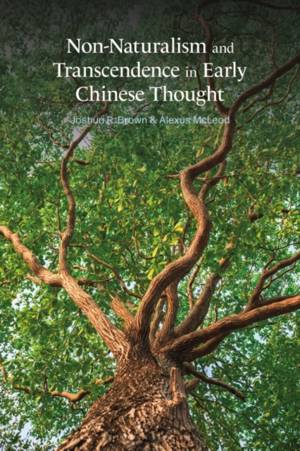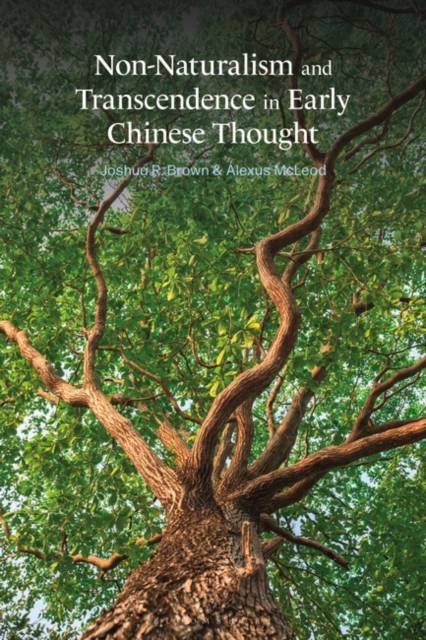
- Afhalen na 1 uur in een winkel met voorraad
- Gratis thuislevering in België vanaf € 30
- Ruim aanbod met 7 miljoen producten
- Afhalen na 1 uur in een winkel met voorraad
- Gratis thuislevering in België vanaf € 30
- Ruim aanbod met 7 miljoen producten
Zoeken
Transcendence and Non-Naturalism in Early Chinese Thought
Alexus McLeod, Joshua R Brown
Hardcover | Engels
€ 254,45
+ 508 punten
Omschrijving
Contemporary scholars of Chinese philosophy often presuppose that early China possessed a naturalistic worldview, devoid of any non-natural concepts, such as transcendence. Challenging this presupposition head-on, Joshua R. Brown and Alexus McLeod argue that non-naturalism and transcendence have a robust and significant place in early Chinese thought.
This book reveals that non-naturalist positions can be found in early Chinese texts, in topics including conceptions of the divine, cosmogony, and apophatic philosophy. Moreover, by closely examining a range of early Chinese texts, and providing comparative readings of a number of Western texts and thinkers, the book offers a way of reading early Chinese Philosophy as consistent with the religious philosophy of the East and West, including the Abrahamic and the Brahmanistic religions. Co-written by a philosopher and theologian, this book draws out unique insights into early Chinese thought, highlighting in particular new ways to consider a range of Chinese concepts, including tian, dao, li, and you/wu.Specificaties
Betrokkenen
- Auteur(s):
- Uitgeverij:
Inhoud
- Aantal bladzijden:
- 256
- Taal:
- Engels
Eigenschappen
- Productcode (EAN):
- 9781350082533
- Verschijningsdatum:
- 3/09/2020
- Uitvoering:
- Hardcover
- Formaat:
- Genaaid
- Afmetingen:
- 156 mm x 234 mm
- Gewicht:
- 530 g

Alleen bij Standaard Boekhandel
+ 508 punten op je klantenkaart van Standaard Boekhandel
Beoordelingen
We publiceren alleen reviews die voldoen aan de voorwaarden voor reviews. Bekijk onze voorwaarden voor reviews.








